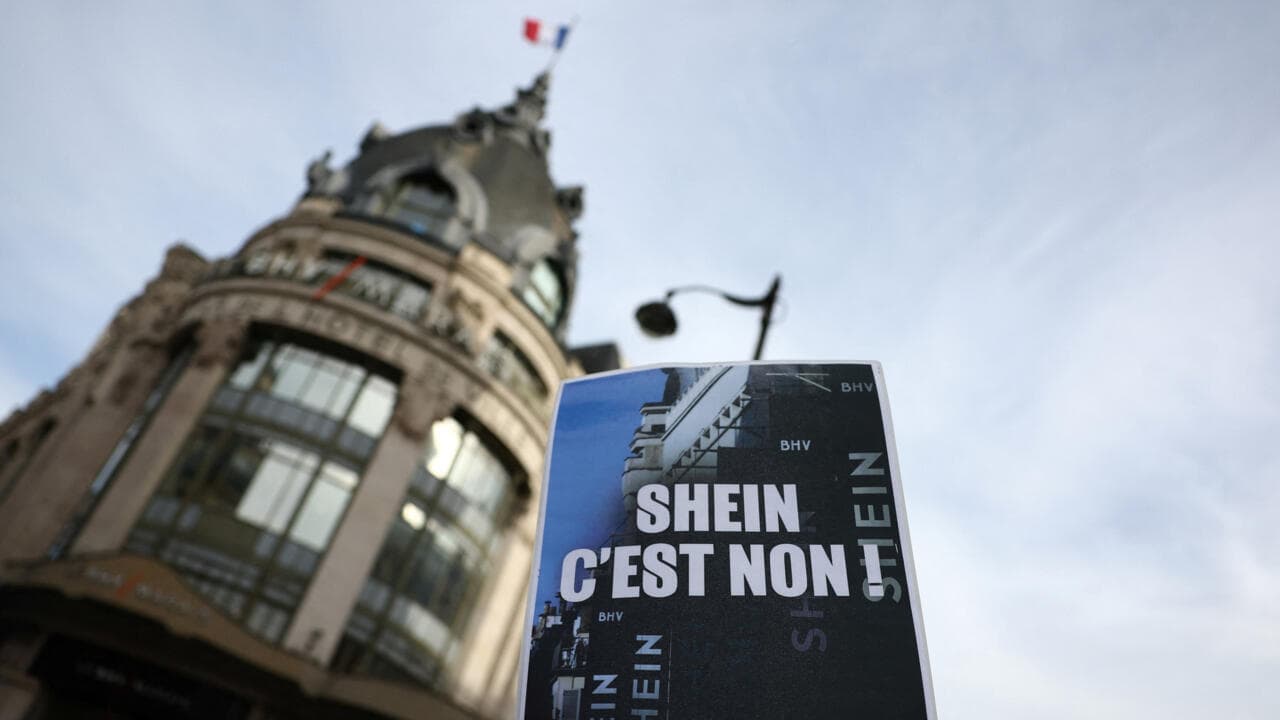We're loading the full news article for you. This includes the article content, images, author information, and related articles.
The global fast-fashion giant's first permanent store launch is marred by intense controversy over labour practices and illicit products, prompting French authorities to suspend its online platform. The fallout raises critical questions for its growing consumer base in Kenya and Africa.

PARIS, FRANCE – Fast-fashion behemoth Shein opened its first-ever permanent physical store in Paris on Wednesday, November 5, 2025, an event marked by a heavy riot police presence, vocal protests, and a dramatic intervention by the French government. On the same day as the launch, the French government announced it was initiating a procedure to suspend Shein's online platform in the country.
The decision, issued from the office of Prime Minister Sébastien Lecornu, stated the suspension would last for "the time necessary for the platform to demonstrate to the public authorities that all of its content is finally in compliance with our laws and regulations." This action followed the discovery of "child-like" sex dolls being sold on Shein's third-party marketplace, which prompted the Paris prosecutor's office to open an investigation into Shein and other online retailers like AliExpress and Temu.
Shein, which was founded in China and is now headquartered in Singapore, has since removed the contentious products, banned all sex-doll-type items globally, and stated it is cooperating with French authorities. In a statement, Shein's executive chairman Donald Tang took personal responsibility for the third-party listings, calling the fight against child exploitation "non-negotiable."
The store's opening at the historic BHV Marais department store at 1:00 PM EAT (1200 GMT) drew both long queues of shoppers and organised protests. Activist groups, including children's rights advocates, gathered nearby with signs reading "Protect children, not Shein" and "Shame on Shein," distributing flyers that condemned the company for "suspected forced labour," environmental pollution, and overproduction. The controversy has been met with widespread criticism from French politicians, including Paris Mayor Anne Hidalgo, and fashion industry bodies who argue Shein's business model is exploitative and damaging to local industry.
Despite the backlash, hundreds of shoppers waited for hours to enter the 1,000-square-metre space, highlighting the brand's powerful appeal, which is built on offering thousands of new, trendy items at remarkably low prices.
The events in Paris amplify long-standing global concerns about Shein's business practices. The company's "ultra-fast fashion" model, which can take a design from concept to production in a matter of days, has been heavily criticised for its environmental toll. Reports allege the company produces the same amount of CO2 as 180 coal-fired power plants annually and contributes significantly to textile waste.
Furthermore, serious allegations of labour abuses persist. Investigations by groups like Public Eye and documentaries have reported that workers in some supplier factories are subjected to 75-hour workweeks, in violation of Chinese labour laws. The company has also faced scrutiny over its supply chain, with a 2022 Bloomberg report finding that some of its garments were made with cotton from China's Xinjiang region, an area associated with forced labour allegations. Shein maintains it has a zero-tolerance policy for forced labour.
For Kenya and the broader East African region, the global debate surrounding Shein is increasingly relevant. The online retailer has gained significant traction across Africa, including in Kenya, South Africa, and Ghana, primarily through influencer-driven marketing on social media platforms like TikTok. Its low prices are a major draw for a young, budget-conscious demographic.
However, this growth poses a direct threat to local textile industries and designers who cannot compete with Shein's scale and pricing. The influx of cheap, disposable clothing also risks exacerbating the existing problem of textile waste in countries like Kenya, which are already grappling with the environmental impact of second-hand clothing imports.
In a move to address its environmental footprint on the continent, the newly established Shein Foundation announced a US$5.3 million commitment in January 2025 to the Africa Collect Textiles (ACT) Foundation. The grant aims to improve textile donation and recycling infrastructure in Kenya, creating jobs and promoting a more circular economy. While this initiative has been acknowledged, critics view such moves as insufficient to offset the fundamental environmental and social challenges posed by the company's core business model.
As French authorities proceed with their suspension and investigations, the outcome will be closely watched globally. For Kenyan consumers, regulators, and the local fashion industry, the controversies surrounding Shein's Paris debut serve as a critical case study on the complex trade-offs between affordability, labour ethics, and environmental sustainability in the globalised fashion market.
Keep the conversation in one place—threads here stay linked to the story and in the forums.
Sign in to start a discussion
Start a conversation about this story and keep it linked here.
Other hot threads
E-sports and Gaming Community in Kenya
Active 9 months ago
The Role of Technology in Modern Agriculture (AgriTech)
Active 9 months ago
Popular Recreational Activities Across Counties
Active 9 months ago
Investing in Youth Sports Development Programs
Active 9 months ago